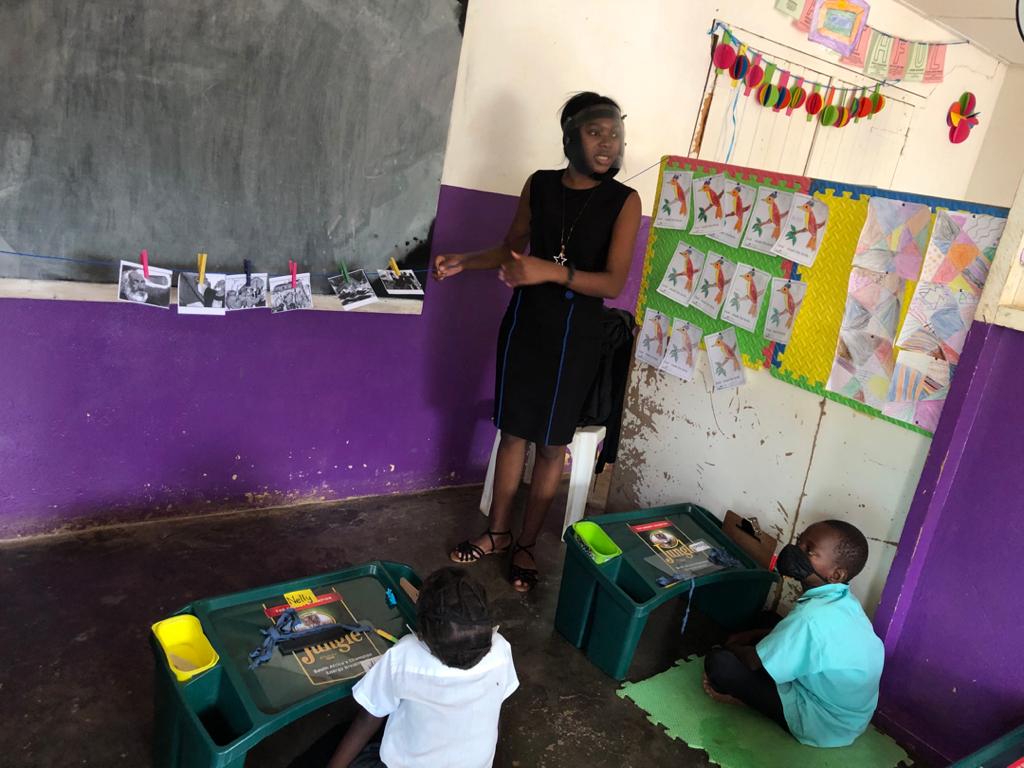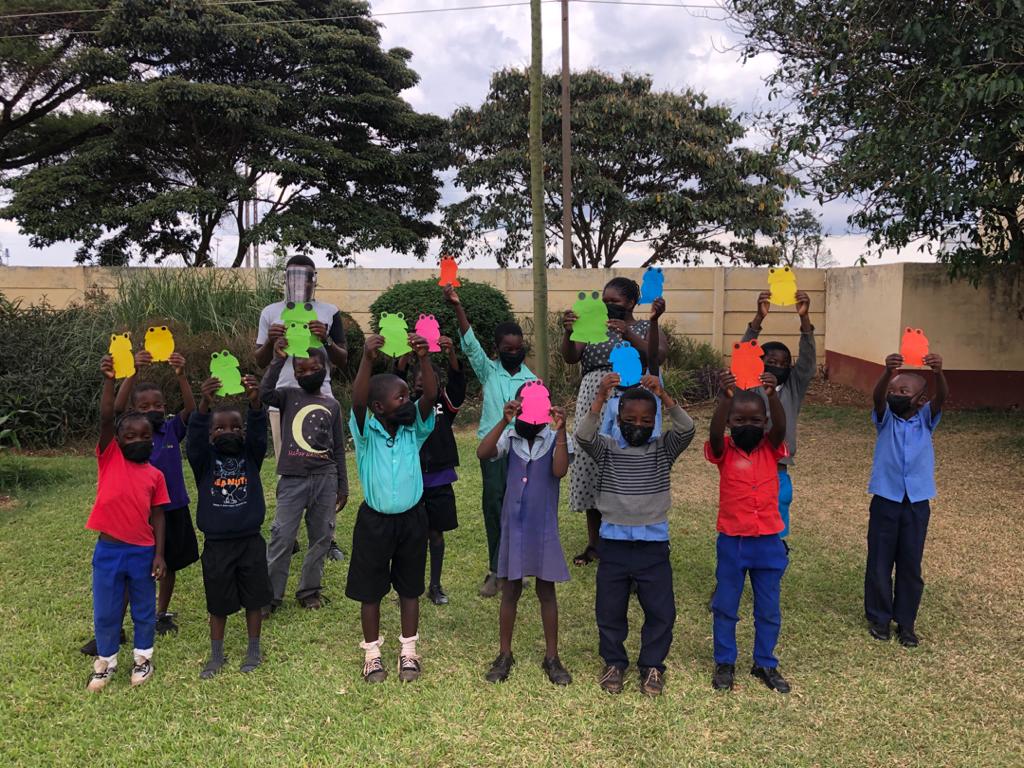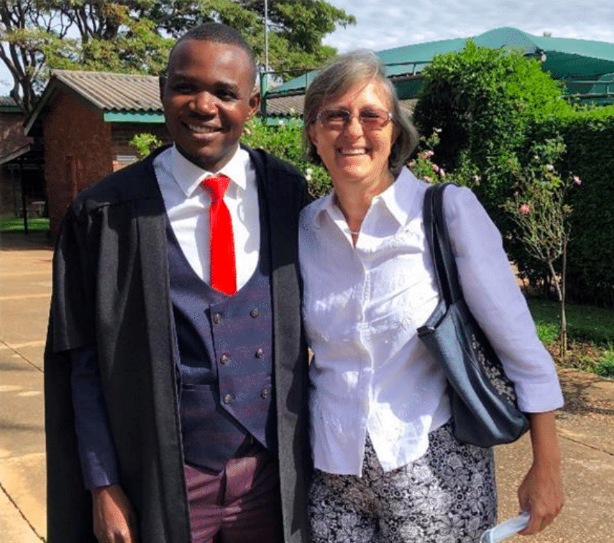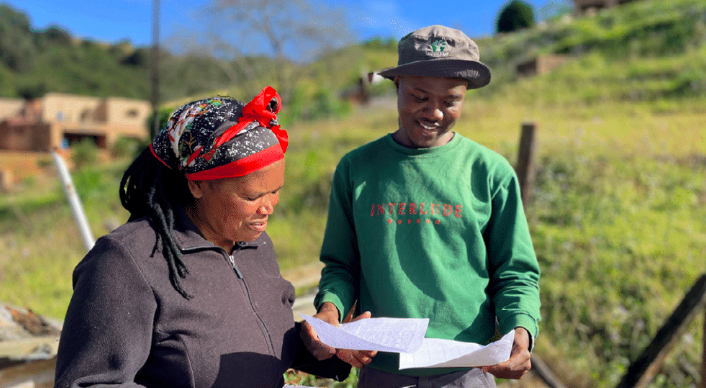
The huge economic and political turmoil in Zimbabwe in the early 2000s had a devastating effect on
the schools, with a drop in academic ability year on year among the children attending, and with
families increasingly unable to educate their children. Dropping out of school for many children, and
especially for girls, marks the end of any further opportunity to develop themselves.
As of 2025 many children are still unable to attend school as their families cannot afford the fees or
the cost of school uniforms. Even if they manage to pay for these, the teachers are often not
teaching as they are not being paid.
Cross Over was established in 2007 by Debbie Norton, with the aim of helping vulnerable children in
Zimbabwe who had missed out on education to live and work towards a hopeful future. She was
convinced that preventing problems in vulnerable communities was far more important than trying
to fix them afterwards, and that community development is a complex matter where the needs of
individuals must be considered holistically in their family and community context.
Most materials available to her were very Western in context and not relevant to their situation, so
Debbie began developing appropriate materials to work with children in local farm schools and in
her church. A simple example – a Western craft lesson might ask students to bring a cereal box to
school – not feasible in rural Zimbabwe! The curriculum was designed to help children learn and
work with ‘head, heart and hands’. The long-term goal – to develop students to become reliable and
productive members of their communities.
Cross Over started as a single school with small classes (no more than 15 students in each, grouped
according to academic ability rather than age). Each class had a mentor who taught them but was
also a role model, counsellor and advocate for the children. Mentors were chosen by the
community. The curriculum was developed to provide everything they needed to take the students
through a year of learning. With this and internal training, they became empowered to be brilliant
teachers.
The intention was always to extend their model throughout the country, enabling other community
groups such as churches to reach thousands of vulnerable children. To this end they ran training
courses and made their specially developed learning resources freely available to needy groups who
could not pay.
In 2022 the team made the difficult decision to close the school, in order to be able to serve needy
children more widely. Cross Over now focuses on making resources and training accessible to any
educational initiatives that want them, keeping the cost as low as possible whilst still generating
enough profit to make the resources available for free to the most vulnerable. The resources consist
of scripted lesson plans with all the visual materials, flashcards and other materials needed to deliver
the lesson, plus student activity packs and assessment packs. Wherever possible Cross Over also
provides as much classroom equipment and stationery as they can. Such initiatives are needed more
than ever, in view of the dire state of many schools in Zimbabwe.
As of January 2025, six small schools in Harare and Bulawayo had been following the Cross Over
model for 2 years, and another one was due to start. These are being run by mentors from Cross
Over or by people whom Cross Over trained. Despite the risks it poses to their sustainability, each of
the startup schools is carrying a number of vulnerable children who cannot meet fee payments.
Debbie and her colleagues have completed all the resources for a complete Grade 1 programme,
and are now developing materials for Grade 2.
A student at the Cross Over school wrote some years ago: ‘I am a girl of 13 and I never went to
school. Well, I went once but I didn't like it so I never went again and my aunt and uncle never made
me. Now I am going to Cross Over and I am slowly learning to read and write. It was hard at first,
going to school. I did not like getting up early every morning and having to wash. My mentor made
me wash my clothes at school. One day she mended my torn dress so the other children wouldn't
laugh at me. Another day she was so cross with me for not having washed that she sent me home.
That doesn't happen any more. I now know to keep myself clean.'
Nomatter Kosiya is one of the local people employed by Cross Over as a mentor to the children. He
studied to obtain the qualifications he needed before undergoing teacher training, and graduated as
a teacher in April 2022 – the first student to graduate on a Cross Over scholarship. Since then Abby
Sabawo has become the second mentor to qualify as a teacher through the scholarship programme.
Abby immediately started a Reading Club in her home using the Cross Over Read Aloud programme,
seeing the need to support literacy in her immediate sphere of influence.





